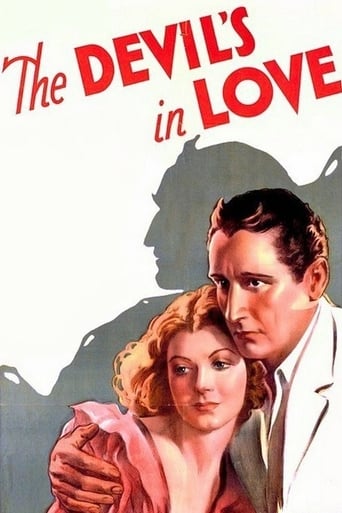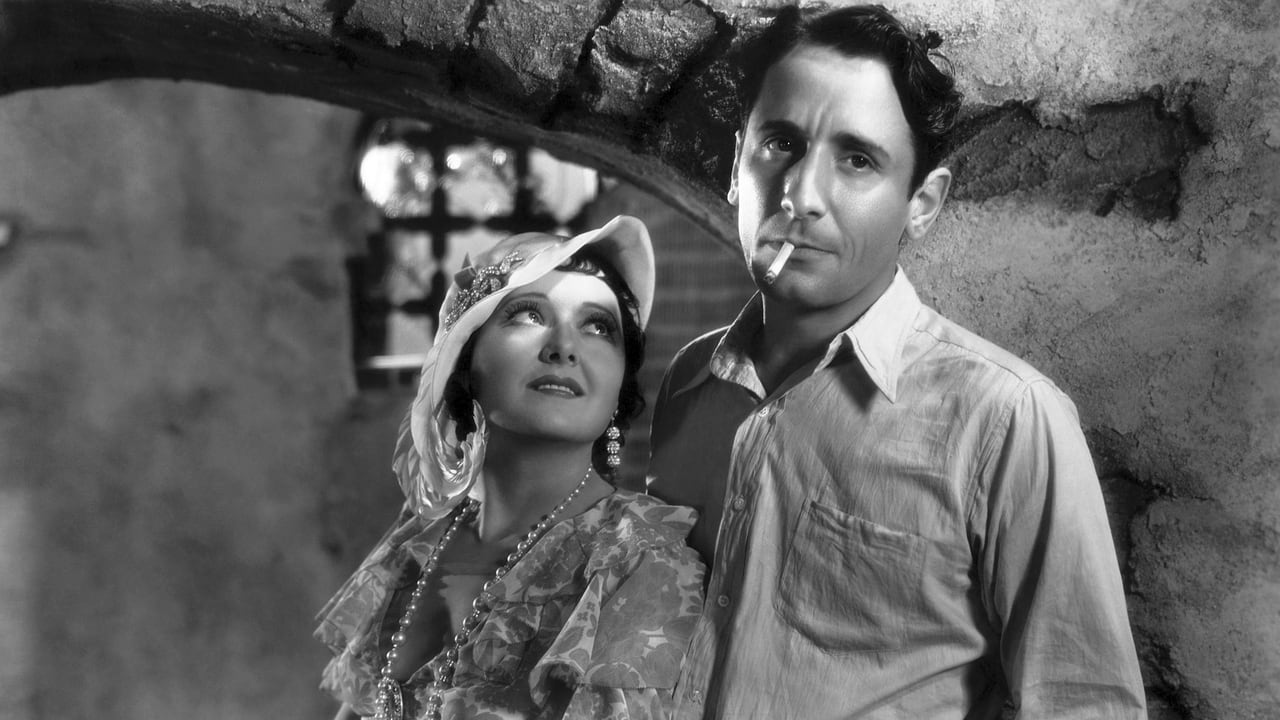kevin olzak
1933's "The Devil's in Love" was yet another Fox entry in the French Foreign Legion adventures so popular at the time. Major Bertram (Robert H. Barrat) has just transferred his best doctor, Andre Morand (Victor Jory), to an outpost that means certain death, then ends up poisoned after taking some medication. Andre is quickly convicted of murder, but his good friend, Capt. Jean Fabien (David Manners), ensures his escape to Port Zamba, where he resumes his practice under the name Paul Vernay, gaining time to prove himself innocent before Chief of Police Radak (C. Henry Gordon) can find him. Both Victor Jory and Bela Lugosi (as well as C. Henry Gordon) had previously appeared in a 1930 Legion feature at Fox, "Renegades" (Jory's film debut), and had another connection for the same studio: Lugosi had played the fortune teller Tarneverro in 1931's Charlie Chan feature "The Black Camel," while in the 1941 remake "Charlie Chan in Rio," Jory played the role, now called Alfredo Marana. David Manners, from "Dracula" and "The Death Kiss," would work with Lugosi once more in 1934's "The Black Cat," while Loretta Young would actually work with Boris Karloff this same year, in "The House of Rothschild." Lugosi found steady employment at Fox prior to Dracula, but this one-shot return went unnoticed at the time; inexplicably, he receives no on-screen credit (for the last time), though it's clearly a showy part that served him well (about five minutes screen time). Wearing a bushy moustache and clad in military uniform, Bela's smug and confident prosecutor actually wins his case. Other impressive performances are essayed by J. Carrol Naish and Akim Tamiroff.
bill-890
This is an amazingly "advanced" film for its time. Visually it is all about light revealing and concealing elements of the scene. Lighting changes the shape of the frame over and over, splashing patches of the scene here and there while leaving other parts totally black. Characters are often shot in close-up and illuminated fiercely, making the image strikingly two-dimensional. But at the same time the film makes use of Fox's "authentic" appearing studio sets and painstaking decor to create a convincing world in depth for a quite unconvincing plot. The movie climaxes with a battle scene that seems to owe more to Soviet film (Eisenstein et al.) than to "classical Hollywood". Taken together, these techniques would have made the film quite cheap and quick to make as well as very exciting to watch. Seen today, it articulates a strong case for the artistic aspirations of Fox Studios and for William (Wilhelm) Dieterle, a director who was involved with more than his fair share of interesting and unusual projects over forty years.Acting in the film is quite low-key for this sort of melodramatic romance during the early thirties in Hollywood. (Compare the dialog delivery here with any John Ford Fox film of the period). The soundtrack, which does not use a musical score, is notable for the way in which the accents and tonality of the characters' voices seem foregrounded (Bela Lugosi's cameo as a military prosecutor is a case in point). The scenario seems to have deliberately toned down Jekyll-Hyde aspects in the representation of the lead character (the "devil" of the title, played by Victor Jory), which makes the sadistic revenge he takes at the end something of a surprise and pretty much eliminates any psychological tension in the character for the rest of the film. On the other hand, Loretta Young is a kind of renewable revelation in early sound films: she has an immediate, relaxed screen presence that perfectly suits the medium, and which in this case makes Jory appear even more awkward and stilted than usual. The very last shot in the film seems to me to be held long enough so that we are intended to be aware of the ironies of this particular "happy ending". It shows the stiffly posed couple of Young and Jory beside a memorial to the Really Good Man whose martyrdom in the big battle scene has removed all obstacles to their love. No kiss, no blissful fade-out - just two miserable people at attention waiting until they can be uncomfortably alone together.
marcslope
Victor Jory, a French Foreign Legion medic unjustly charged with murdering a superior officer, escapes the firing squad with the aid of best pal David Manners. He finds sanctuary in Loretta Young's mission and falls in love with her, not knowing that just a few months ago she was in Paris and met and became engaged to... David Manners! Other implausibilities and co-inky-dinks dot this sub-Hemingway nonsense, which also features the alleged comic relief of Herbert Mundin and Vivienne Osborne as Jory's old flame -- an independent-minded, self-sacrificing, and thoroughly admirable Bad Woman who makes the Latin Quarter of whatever North African outpost this is supposed to be look infinitely more fun than the virtuous surroundings of Young's mission. Young, required only to look pretty and play holier-than-thou, does so competently, and the director, William (still billed as "Wilhelm" at this point in his career) Dieterle, was always good for some striking compositions. It's also interesting to see Jory, usually in supporting and/or villainous roles, attempt a Gary Cooper-type hero. He's a little stolid and you're never aware of anything much going on in his head, but that would be asking a lot of a character drawn this broadly. An amiable time-waster with a pointless title, and it's fun to watch the audacious turns of plot and twists of fate pile up.
curly-17
"The Devil's in Love" is a very interesting movie, and fans of old movies consider this a gem. A good cast and a compelling plot are highlights. This could have been just another story of intrigue in the Foreign Legion, but Bela Lugosi gives a stand-out performance as the Military Prosecutor. Although Bela had a small role (remember the famous quote: "There are no small parts, only small actors") it was a key role and pivotal to the story. The scene Bela is in is actually fairly lengthy. Whereas Bela's name is absent from the main credits, Bela's performance did not go unnoticed by his growing number of fans-- who were now becoming, pardon the pun, Legion.


 AD
AD


